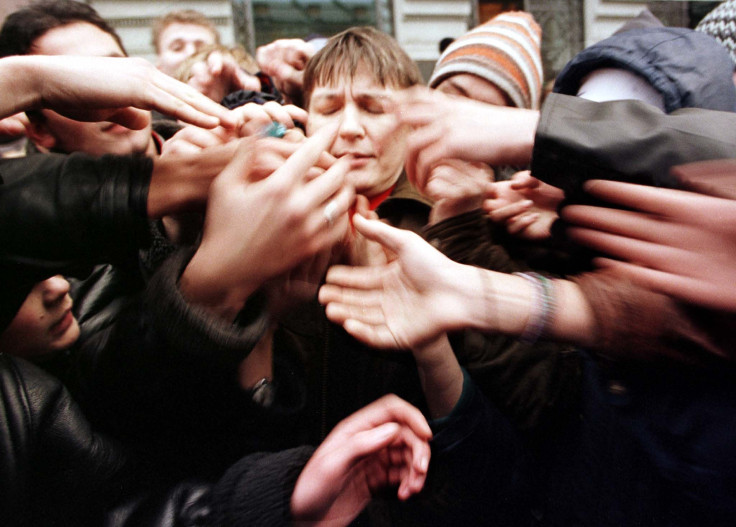Russian Lawmakers Advocate Mandatory HIV Testing Plan For Couples Seeking To Marry

The healthcare committee of Russia’s legislative body Duma Wednesday supported a suggestion that would require mandatory HIV testing for all couples seeking to get married.
“It's a reasonable proposal and should be supported. The number of HIV-positive people is growing and it is becoming a serious problem. I think our top public health official [Anna Popova, head of healthcare watchdog Rospotrebnadzor] is absolutely right,” Nikolai Gerasimenko, first deputy chairman of the healthcare committee, told Interfax Wednesday, cited by Moscow Times.
Popova suggested the idea Tuesday at a youth forum known as Terra Scientia. She also expressed her support for genetic and hepatitis tests for couples planning to have a child.
The news comes shortly after Moscow announced that it would start restricting imports of condoms and other contraceptives as part of a push to reduce its reliance on foreign-made goods. Russia predominantly relies on foreign-made condoms to meet its demands, as figures indicate that Russian producers of these goods make up only 4 percent of the domestic market.
The demand for condoms in Russia has also surged in recent years. Russians used 50 percent more condoms in April than they did in the same month last year, according to Moscow Times.
Former Russian chief sanitary doctor Gennady Onishchenko said early this month that the ban had “nothing to do with health." Instead, the move was intended to “make one more disciplined, more strict and discriminating in choosing partners, and maybe will do a favor to our society in respect to solving demographic problems," he added.
The country is also facing a shortage of HIV medication, prompting Moscow to issue several pledges to keep the cost of treatment in check. The cost of essential drugs has spiked after the ruble lost about 50 percent of its value last year.
Popova's proposal also comes at a time when Russia is seeing a growing number of HIV cases. Vadim Pokrovsky, head of the country’s AIDS center, said that the Kremlin’s policies, which were aimed at promoting traditional values, were failing to show results.
“The last five years of the conservative approach have led to the doubling of the number of HIV-infected people,” he told Agence France-Presse in May. “It has not justified itself.”
Pokrovsky said that Russia has over 930,000 confirmed cases of HIV, of whom about 192,000 people have already died. He added that the number of cases is expected to rise to over 1 million by the end of the year as the disease increasingly affects the country’s heterosexual population as well.
When asked about the crackdown on imported condoms, Russian President Vladimir Putin’s spokesman Dmitry Peskov said: “You know, the Kremlin has not thought about it,” local newspaper Pravda reported.
© Copyright IBTimes 2025. All rights reserved.





















